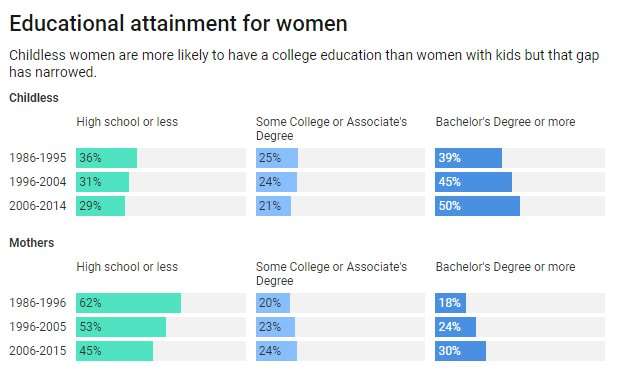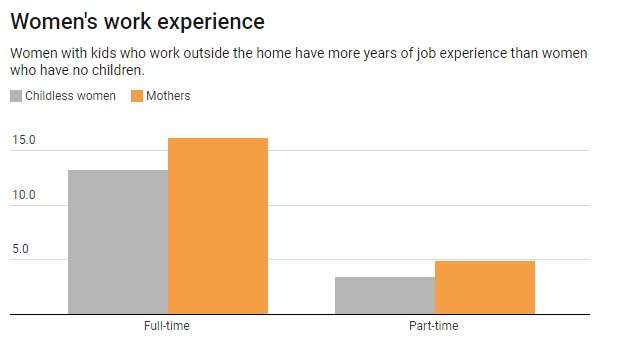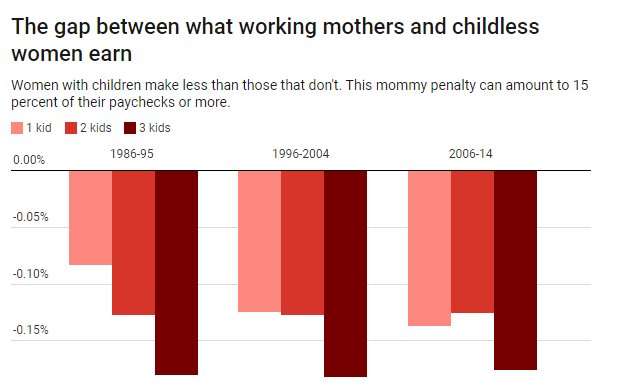Women earn less after they have kids, despite strong credentials

Women without kids have than employed mothers for decades or longer. But differences between these two kinds of workers, in terms of the and the job experience on their resumes, are diminishing.
This manifestation of inequality is becoming a bigger problem, since the number of on the income these working parents take home is growing. The share of moms who make money has soared from .
And the persistence of this disparity is a bit baffling because moms have stepped up their game by attaining higher levels of education and gaining work experience over the last 20 years. Based on my many years of on how motherhood affects women's paychecks, I'm certain that there are policies that can help fix this problem.
Long-term gaps
To try to understand the scope of this problem, I teamed up with economists and to do a sponsored by the Washington Center for Equitable Growth, a think tank. By reviewing pertaining to the earnings of about 14,000 women, we found out that mothers' wages are even lower than we'd expected, even when they put time into their education and careers.
Moms and women without kids have both ratcheted up their educational credentials. But mothers, as it turns out, have gained more.

Because mothers in the workplace are, on average, about five years older than childless women, they usually have had more job experience – but working moms have also ramped up their job qualifications over time.
Yet moms with three kids earn about 18 percent less than childless women, and those with two kids take home wages that are about 13 percent lower.
What's going on?
It surprised us to see not only that working moms with just one kid still earn less, but also that the gap between their wages and those made by childless women has gotten even bigger in the past 30 years.
And this difference is not about parenthood, but really about gender and parenthood. While generally earn less than childless women, typically earn more than men without kids.

What economists call the "," the difference between what men and women with similar qualifications earn for comparable work, is about parenthood too.
Discrimination may not explain all of these differences in wages, but it probably accounts for some of them.
For one thing, employers are to respond to job applications – using the exact same resume – if the resume notes that a woman belongs to a parent-teacher organization. Mothers are also offered lower wages.
Some solutions
Are mothers' wages penalized to the same degree everywhere? No, in fact, many countries have reduced this mommy penalty or even equalized pay between childless women and mothers. Research I've done with and bears this out.

Consider what we learned about . There, 86 percent of children between the ages of three and six, as well as 41 percent of kids who are even younger than that, are in publicly funded child care. Swedish couples, in addition, get to take up to 50 weeks of fully paid parental leave between them, on top of seven weeks of maternity leave and two weeks of paternity leave.
Perhaps unsurprisingly, the mommy penalty is far smaller in Sweden than the U.S.
That's because child care helps working parents balance care responsibilities with employment. Whether women can take paid family leave also matters because it lets them stay in the workforce, making their caregiving responsibilities less likely to derail their careers. And when fathers also take leave, caregiving does not stigmatize women.
Provided by The Conversation
This article was originally published on . Read the .![]()



















